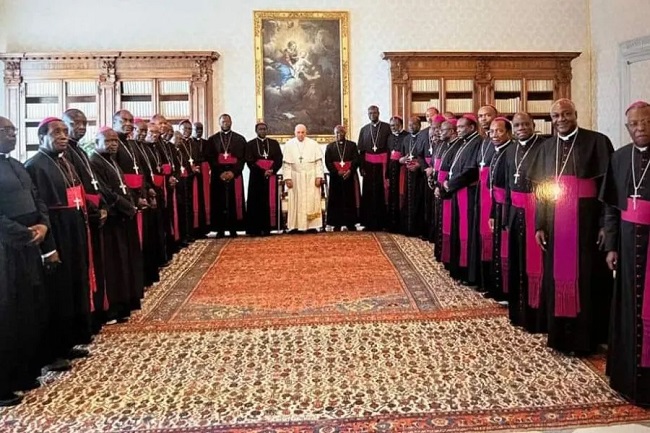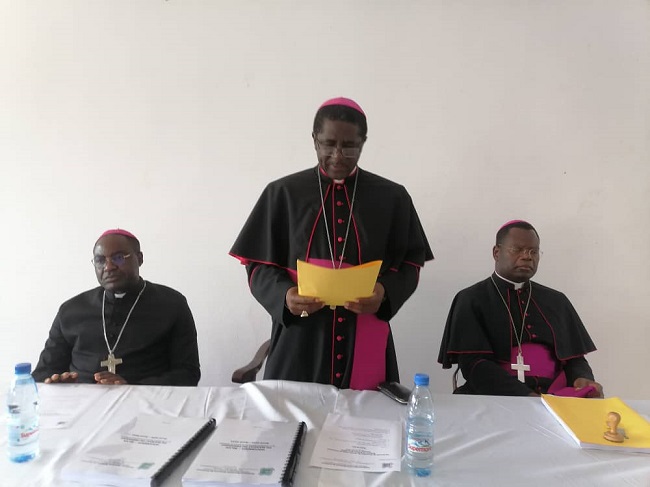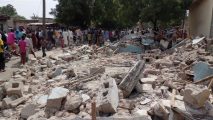2, October 2024
Pope Francis opens new debates on Catholic Church future 0
The General Assembly of the Synod, comprising 368 religious and lay people — including women — from around 100 countries, will hold closed-door debates on potential reforms at the Vatican until October 27.
The synod had already gathered for a month-long assembly in October 2023, after a three-year worldwide consultation among Catholics organised by Francis to confront challenges facing the 2,000-year-old Church.
The 87-year-old Argentine pontiff will have the final say on any doctrinal changes they recommend.
Last year, the assembly addressed themes as varied as attitudes to LGBTQ people, polygamy, the ordination of married men and the fight against the sexual abuse of children by priests.
Although the body resisted pressure to allow the ordination of female priests, calls continue for more visibility and space for women in an institution still run by men.
No decisions are expected any time soon, with the most sensitive issues entrusted to working groups that will deliver their conclusions in June 2025.
Francis launched the Assembly with a mass in St Peter’s Square, where he urged participants to enter the discussions with an open mind.
“Let us be careful not to see our contributions as points to defend at all costs or agendas to be imposed,” he said.
He added that the meeting was “not a parliamentary assembly, but rather a place of listening in communion”.
On Tuesday evening, Francis held a “penitential” vigil attended by around 2,5000 people in St Peter’s Basilica, during which he again asked forgiveness and expressed his “shame” for the abuse by priests that has overshadowed the Church’s work across the world.
People at the vigil heard from a South African former choirboy who was assaulted by a priest when he was just 11, and who denounced a lack of transparency and responsibility in and by the Church that he said had shaken the faith of millions of people.
“We are here as beggars of the Father’s mercy, asking for forgiveness,” Francis said.
“How could we be credible in our mission if we do not acknowledge our mistakes and stoop to heal the wounds we have caused by our sins?” he added.
Source: AFP


























4, October 2024
Far North Flooding: Roman Catholic Bishops announce a collection for victims 0
The floods that have hit Cameroon in recent months have caused loss of life and enormous material damage. Those mostly affected by the deadly floods are in Mayo-Danay, a Far North Province of Cameroon. As Caritas Cameroon cannot respond to all requests for help, the Cameroon National Episcopal Conference has invited all parishes to organise a collection this Sunday, 6 October.
In a recent Statement, CENC president Archbishop Andrew Nkea recommended organising a special collection in all parishes of the country.
“We ask that a collection be organised on Sunday, 6 October, in all the parishes of our various dioceses,” he said.
Bishop Damase Zinga Atangana of Kribi Diocese and President of the Episcopal Commission for Catholic Education urged Catholic schools to do the same during the first week of October.
Catholic Church’s long tradition of helping
Cameroon’s Catholic Bishops have thus invited all Catholics and people of goodwill to show generosity and charity towards the victims by making their contributions to the collection. Archbishop Samuel Kleda of Douala appealed for donations, reaffirming the Catholic Church’s long tradition of helping those in need. “These are Cameroonians who need serious help. It is Catholic tradition for the Church to contribute financially to help the poor and suffering,” said Archbishop Kleda.
Many homes and schools damaged
The current wave of floods in Cameroon follows heavy rains since July. The rains have left at least 20 people dead and more than 236,000 in the Far North of the country affected and in need of humanitarian assistance.
Many homes and schools in Mayo-Danay Province have been destroyed. Farmlands have also been washed away, setting up the region for acute food shortages.
Source: Vatican News